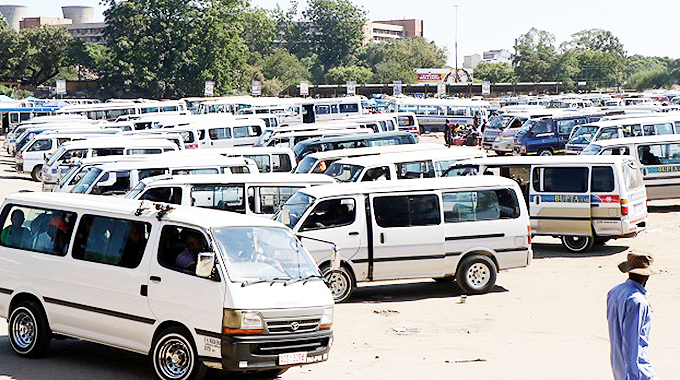Source: Editorial Comment: Kombi operators must accept new model | The Herald

The proposed phasing out of privately-owned commuter omnibuses has triggered debate, though kombi owners who meet Zupco standards can register to offer franchised services.
People received news quoting Local Government and Public Works Minister July Moyo recently that Government would extend the ban on independent kombis after the lockdown with mixed feelings.
Many Zimbabweans invested in the kombi business to get income built around daily cash flows since the business model had drivers renting a kombi by the day for a fixed fee.
Owners were responsible for licensing and maintenance, while drivers were responsible for fuel.
The alternative Zupco model is different and requires kombi owners to be more active in running the business. There are daily flows of cash, from ticket sales, but subsidy payments can be delayed and in any case fuel comes from the Government via Zupco.
So many independent owners are not pleased about the proposed ban on their operations.
Users, however, prefer Zupco kombis over independent kombis. Besides lower fares, Zupco does demand certain standards from both drivers and conductors and, most critically, bans touts from loading its kombis or having any interaction with either the passengers or kombi crews.
The minor inconvenience, that Zupco franchised vehicles stop only at designated bus stops, is not that serious since bus stops are fairly close together, rarely more than 500m apart, so even the most disadvantaged commuter has to walk little more than 250m to stand under the sign.
Where passengers have doubts is whether there will be enough bus seats, whether these are in large buses or kombis.
At the moment there are not. Part of this is the ban on independent kombis, but part is temporary, that kombis and buses in effect have to travel half full to ensure social distancing.
As lockdown restrictions are being eased, more people travel, buses and kombis can go back to full loads, but there might still be seat shortages unless most of the former independents want to join Zupco and are allowed to join.
Cutting the number of seats on offer each day is likely to create long queues and encourage people to use pirate taxis and mushika mushika.
So Government and Zupco, while insisting on standards and insisting that rules must be followed if a kombi-owner wants to stay in the fleet and so stay in business, should not impose arbitrary limits on the number of vehicles allowed to join.
The long term viability of kombi ownership will be hit as Zupco’s own fleet grows, but the expansion is unlikely to be so rapid that roadworthy kombis will have to be withdrawn from service.
Far more likely is that few will want to enter the field as Zupco grows.
At least under Zupco, we can account for all kombis operating in our towns for the purposes of taxation, which we think is a positive development given that national revenue base continues to shrink.
Bringing the informal sector into the mainstream means lessening the burden from the formally employed, but underpaid workers and a few businesses that have been paying corporate taxes.
We know when kombi crews or passengers are involved in accidents they are rushed to poorly-equipped public health institutions.
All the informal business players, let us face it, no matter how rich they are, when they are involved in accidents they are first attended to by doctors and nurses in public health institutions.
When their properties catch fire they rush to local authorities’ fire departments. So we are saying all informal businesses should in one way or the other contribute towards taxation.
In the case of Covid-19 that the Government is battling to control by removing the kombis, we do not want a situation where the actions of these operators result in increasing the rate of infection, while the burden of treatment is saddled on taxpayers and donors.
Therefore, there is nothing wrong in these operators for the purposes of regulations and proper conduct to operate under Zupco.
Assuming the private players want to self-regulate, we propose that Government, the operators and local financial institutions negotiate and come up with a funding scheme that will provide cheap finance that enable kombi owners to graduate to formal and conventional buses.
They could also operate in direct competition with Zupco and its partners, but on terms sanctioned by Government.
But business modes for public transport are changing.
The Government has been remarkably flexible, first reviving Zupco, but without banning kombis and then allowing kombis to re-enter the ring by being licensed by Zupco to provide Zupco services, and that was the real show of flexibility.
Now bus owners, kombi owners, Zupco and the Government need to work together and figure out how to refine this new model, and more particularly start to give timelines when changes will be implemented so that those with investment, and those who may want to invest, can all make rational decisions.
COMMENTS
Brighton Matonga looted at ZUPCO, there was a case of the State vs Charles Nherera and Bright Matonga (the ZUPCO Saga) and nothing serious was done about the issue. However we are now telling private transport operators to put there buses under ZUPCO if they are to remain in business. What guarantee are you giving them as they know that ZUPCO is always poorly run and is for sustaining ZANUPF rallies. I do not see private operators cooperating but foresee transport a shortage which shall be the last nail on ZANUPF’s coffin.